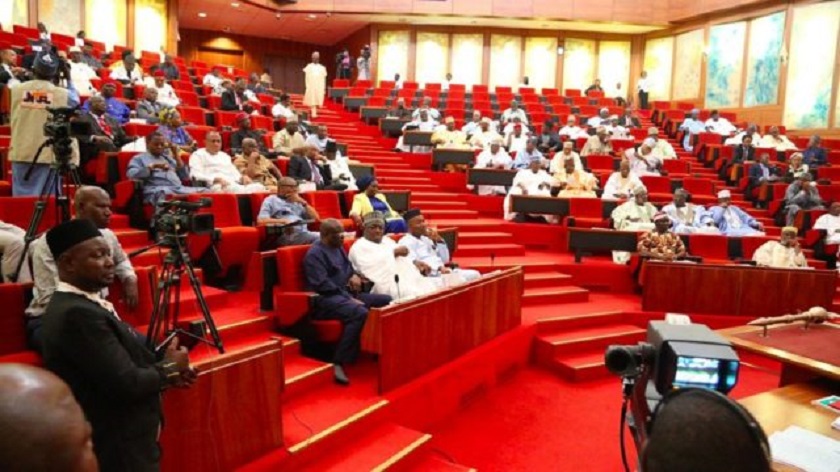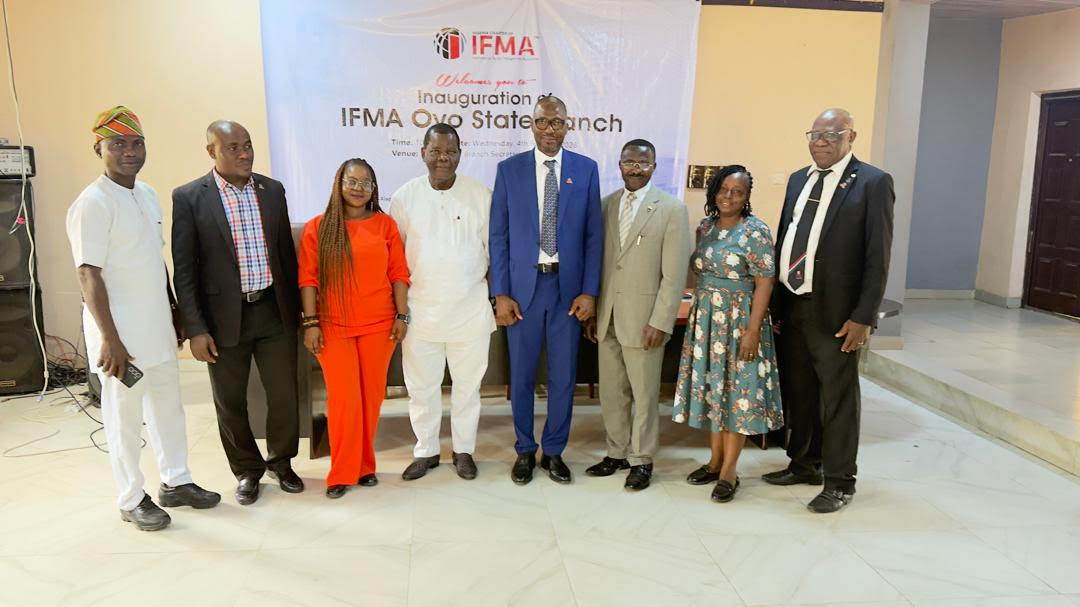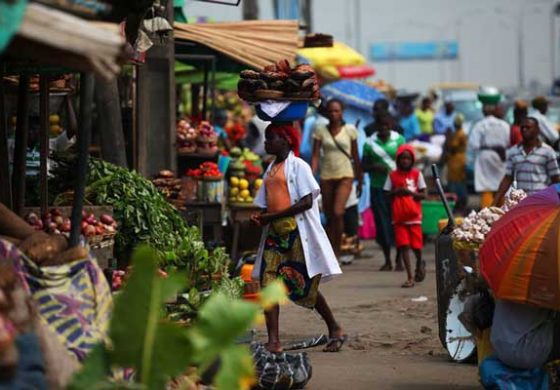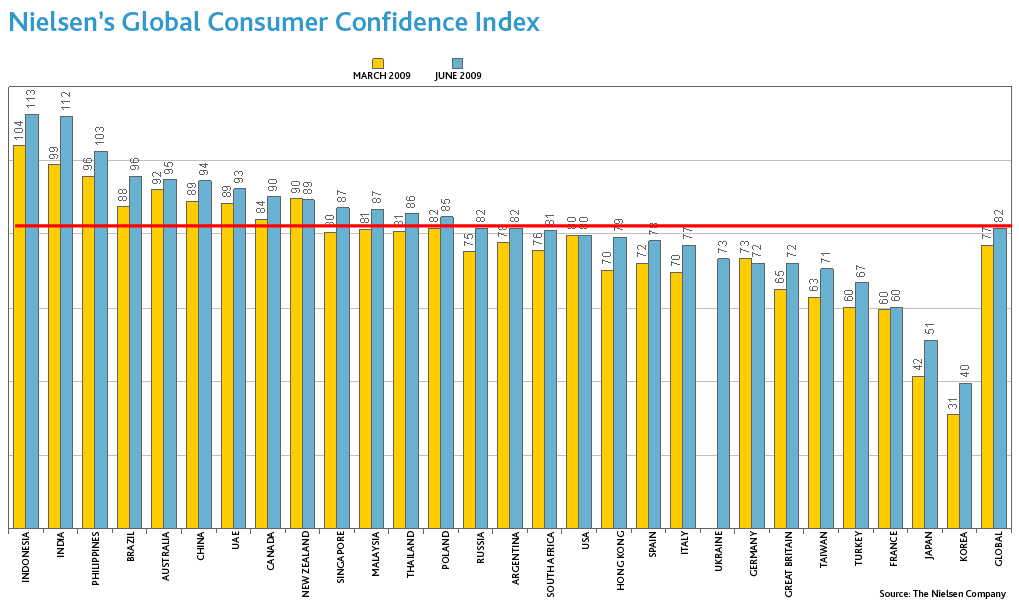General
Nigeria Suffers Drop in Consumer Confidence Index

A new report by Nielsen Africa has revealed that the Consumer Confidence Index (CCI) of Nigeria has dropped five points to 112, while that of Ghana went down by four points to 114 in the third quarter of 2019 from 118 in the previous quarter.
In a statement made available to Business Post, it was stated that these two sets of results present a fairly stable, albeit a slightly less positive picture of consumer sentiment across West Africa compared to the previous quarter.
“Nigerians are experiencing a subdued confidence level considering that inflation has started to rise again and the proposed VAT increase bill, which is making people cautious.
“Furthermore, the rising sovereign debt and the anxiety around further Naira devaluation, continued to impact consumer sentiment in Nigeria in the third quarter,” Managing Director of Nielsen for Nigeria, Mr Ged Nooy, was quoted as saying.
Looking at the consumer picture, Nigerians immediate-spending intentions has shown a large decline; with only 41 percent of consumers (versus 54 percent in the previous quarter) saying now is a good or excellent time to purchase what they want or need. Their perception around job prospects has also declined, with 55 percent viewing them as excellent or good, a five-point drop from the previous quarter.
In addition, sentiment around the state of personal finances has also shown a decline, with 76 percent Nigerians agreeing their state of personal finances will be excellent or good over the next year, a six-point drop from the previous quarter.
Looking at whether Nigerians have spare cash to spend, 47 percent said yes, versus 51 percent in the previous quarter. In terms of their spending priorities once they meet their essential living expenses, 76 percent would invest in home improvements/decorating, 72 percent would put their spare cash into savings and 62 percent say they will invest in shares/mutual funds.
Looking at the top concerns for Nigerians over the next six months, work/life balance tops the list with 28 percent, a one-point increase compared to the previous quarter. This is followed by concerns around increasing food prices at 22 percent (the same as Q2’19) and tolerance towards different religions (19 percent) superseding the economy, which is now at 16 percent, a four-point decrease compared to the previous quarter.
Elaborating on these results, Mr Nooy stated that, “Nigerian consumer sentiment dropped this quarter, however, it is still quite high compared to the cut off of 100, where anything above 100 reflects a positive consumer confidence. The key for marketers and retailers is to understand these fluctuating consumer sentiments and quickly adapt to the consumer’s needs.”
Looking at Ghana’s overall performance, Nielsen Market Lead for West Africa, Yannick Nkembe, noted that, “The initial optimism experienced at the beginning of the year is waning in Ghana owing to the concerns around the economy. Though inflation levels dropped, these have not shown a meaningful impact at the ground level and Ghanaians continue to feel the pressure. Consumers have become cautious of spending as they are not certain of future prospects.”
This more subdued outlook is reflected by Ghanaian consumers’ curtailed view of their job prospects, with a substantial 12-point decrease to 51 percent saying job prospects will be excellent or good in the next 12 months. In terms of the state of their personal finances over the next 12 months, 72 percent say they are excellent or good, down from 74 percent in the last quarter. The number of Ghanaian consumers who feel now is a good or excellent time to purchase the things they need or want, has also seen an inconsequential drop quarter on quarter, from 46 percent to 45 percent.
Looking at whether Ghanaians have spare cash, only 42 percent say yes, down a substantial 10 points from the previous quarter. Once they meet their essential living expenses, the highest number of consumers (82 percent) still say they will put their spare cash into savings, followed by 66 percent on home improvements/decorating and 59 percent who will invest in stocks and mutual funds.
When looking at the factors that are having a negative impact on Ghanaians outlook, the top concerns over the next six months are increasing food prices (26 percent) followed by work/life balance at 22 percent, the economy and tolerance towards different religions, both at 18 percent, and job security coming in fourth at 16 percent.
In light of their outlook, more than three quarters (72 percent) of Ghanaians have changed their spending to save on household expenses compared to the same time in the previous year.
The top three actions they have taken to save money are delaying the replacement of major household items (55 percent), looking for better deals on loans/insurance/credit cards (54 percent) and spending less on new clothes (53 percent).
General
NERC Unveils 3-Step Guide for Resolving Electricity Complaints

By Adedapo Adesanya
The Nigerian Electricity Regulatory Commission (NERC) has introduced a streamlined three-step process to help electricity consumers address common issues like power outages, estimated billing, faulty meters, and voltage fluctuations.
In a public advisory shared on its X handle on Tuesday, the electricity sector regulator emphasised that customers should begin by contacting their respective electricity Distribution Companies (DisCos), which serve as the primary point of contact for technical and billing problems.
Consumers are urged to secure a complaint reference number and maintain records of all interactions for efficient follow-up.
The advisory outlines the process as follows: “Contact your DisCo’s customer care – This is the first step for all technical or billing issues;
“Escalate to State Electricity Regulator (SER) – If unresolved, and the consumer is in a state that has transitioned to an SER;
“Reach NERC Call Centre – For consumers in non-transitioned states or needing further assistance. Contact options include 0201 344 4331, 0908 899 9244, or [email protected],” it said.
“We’re here to make sure your complaint is heard and addressed,” the advisory concluded, aiming to empower consumers amid ongoing challenges in Nigeria’s power sector.
This guidance comes as electricity consumers continue to grapple with service disruptions and billing disputes, highlighting NERC’s efforts to improve accountability across DisCos and state regulators.
General
Senate Passes Electoral Act Amendment Bill After Mild Row

By Adedapo Adesanya
The Senate passed the Electoral Act, 2022 (Repeal and Re-Enactment) Bill 2026 on Tuesday after overcoming a rowdy session that saw lawmakers at loggerheads.
The issue in the upper chamber stemmed from a division over Clause 60 raised by Mr Enyinnaya Abaribe, a member of the opposition party, African Democratic Congress (ADC), from Abia South.
The Senate President, Mr Godswill Akpabio, stated that he believed the demand had previously been withdrawn, but several opposition senators immediately objected to that claim.
Citing Order 52(6), the Deputy Senate President, Mr Barau Jibrin, argued that it would be out of order to revisit any provision on which the Senate President had already ruled.
This submission sparked another uproar in the chamber, during which Mr Sunday Karimi had a brief face-off with Mr Abaribe.
The Senate Leader, Mr Opeyemi Bamidele, then reminded lawmakers that he had sponsored the motion for rescission, underscoring that decisions previously taken by the Senate are no longer valid, maintaining that, consistent with his motion, Mr Abaribe’s demand was in line.
Mr Akpabio further suggested that the call for division was merely an attempt by Mr Abaribe to publicly demonstrate his stance to Nigerians. He sustained the point of order, after which the Abian lawmaker rose in protest and was urged to formally move his motion.
Rising under Order 72(1), Mr Abaribe called for a division on Clause 60(3), specifically concerning the provision that if electronic transmission of results fails, Form EC8A should not serve as the sole basis, calling for the removal of the proviso that allows for manual transmission of results in the event of network failure.
During the division, Mr Akpabio directed senators who supported the caveat to stand. He then asked those opposed to the caveat to rise, to which 15 opposition senators stood.
However, when the votes were counted, the Senate President announced that 15 senators did not support the proviso, while 55 senators voted in support.
Earlier, proceedings in the Senate were momentarily stalled as lawmakers began clause-by-clause consideration of the Electoral Act, 2022 (Repeal and Re-Enactment) Bill 2026, following a motion to rescind the earlier amendment.
The motion to rescind the bill was formally seconded on Tuesday, paving the way for the upper chamber to dissolve into the committee of the whole for detailed reconsideration and reenactment of the proposed legislation.
During the session, the Senate President, Godswill Akpabio, reeled out the clauses one after the other for deliberation.
However, the process stalled when at clause 60, Mr Abaribe raised a point of order, drawing immediate attention on the floor.
This soon caused the session to move into a closed-door session.
Before rescinding the Electoral Act, the red chamber raised concerns over the timing of the 2027 general elections and technical inconsistencies in the legislation.
Rising under Order 52(6) of the Senate Standing Orders, the Senate leader, Opeyemi Bamidele, moved the motion to reverse the earlier passage of the bill and return it to the Committee of the Whole for fresh deliberations.
He explained that the development follows the announcement by the Independent National Electoral Commission (INEC) of a timetable fixing the 2027 general elections for February 2027, after consultations with the leadership of the National Assembly.
He stated that stakeholders had raised concerns that the proposed date conflicts with the provisions of the amended law, particularly the requirement that elections be scheduled not later than 360 days before the expiration of tenure.
He further noted that upon critical review of the passed bill, the 360-day notice requirement prescribed in Clause 28 could result in the scheduling of the 2027 Presidential and National Assembly elections during the Ramadan period.
According to him, holding elections during Ramadan could negatively affect voter turnout, logistical coordination, stakeholder participation, and the overall inclusiveness and credibility of the electoral process.
The motion also highlighted discrepancies discovered in the Long Title and several clauses of the bill, including Clauses 6, 9, 10, 22, 23, 28, 29, 32, 42, 47, 51, 60, 62, 64, 65, 73, 77, 86, 87, 89, 93, and 143. The identified issues reportedly affected cross-referencing, serial numbering, and internal consistency within the legislation.
General
IFMA Nigeria Gets Branch in Oyo, Picks Adejumo Olusola Babatunde as Coordinator

By Modupe Gbadeyanka
A new branch of the International Facility Management Association (IFMA) Nigeria Chapter has been established in Oyo State, with Mr Adejumo Olusola Babatunde chosen as Coordinator.
The organisation set up an arm in the South-West state in a bid to expand its footprint in the country. Mr Babatunde will be assisted by other executive committee members, including Mr Ajiboye Olusola Akeem as Secretary, and Mrs Adeniran Olaide as Treasurer.
At the inauguration of the branch at the Nigerian Society of Engineers (NSE) Secretariat in the Akobo area of Ibadan, the Oyo State capital, the president of IFMA Nigeria, Mr Sheriff Daramola, expressed delight at the successful inauguration of the branch and commended members for their commitment to the growth of facility management in Nigeria.
He highlighted IFMA’s global heritage, noting that the association is supporting over 25,000 members in more than 140 countries worldwide. Mr Daramola emphasised IFMA’s strong global network, the world’s largest and most widely recognised association for facility management professionals, headquartered in the United States and its growing influence in Africa, the Middle East and Europe.
“IFMA members have taken positions of authority across federal, state, and private institutions; IFMA Nigeria is positioned to ensure our professionals are the first choice for global investors entering the Nigerian market,” he stated.
The Legal Adviser of IFMA, Nigeria, Mr Sola Fatoki, who shared this sentiment, said, “Since 1997, when IFMA Nigeria was established, the association has equipped facility management professionals with integrated knowledge spanning human behaviour, infrastructure, and the built environment.”
He encouraged engineers, architects, surveyors, ITC, Technology innovators, data analysts and allied professionals to see IFMA as their professional home and outlined the functions and responsibilities of branch executive committees.
In his remarks, Mr Babatunde expressed gratitude to the national council for the opportunity to serve and pledged to ensure the success of the branch, focusing on unity and the professional advancement of stakeholders in the region.
-

 Feature/OPED6 years ago
Feature/OPED6 years agoDavos was Different this year
-
Travel/Tourism10 years ago
Lagos Seals Western Lodge Hotel In Ikorodu
-

 Showbiz3 years ago
Showbiz3 years agoEstranged Lover Releases Videos of Empress Njamah Bathing
-

 Banking8 years ago
Banking8 years agoSort Codes of GTBank Branches in Nigeria
-

 Economy3 years ago
Economy3 years agoSubsidy Removal: CNG at N130 Per Litre Cheaper Than Petrol—IPMAN
-

 Banking3 years ago
Banking3 years agoSort Codes of UBA Branches in Nigeria
-

 Banking3 years ago
Banking3 years agoFirst Bank Announces Planned Downtime
-

 Sports3 years ago
Sports3 years agoHighest Paid Nigerian Footballer – How Much Do Nigerian Footballers Earn














